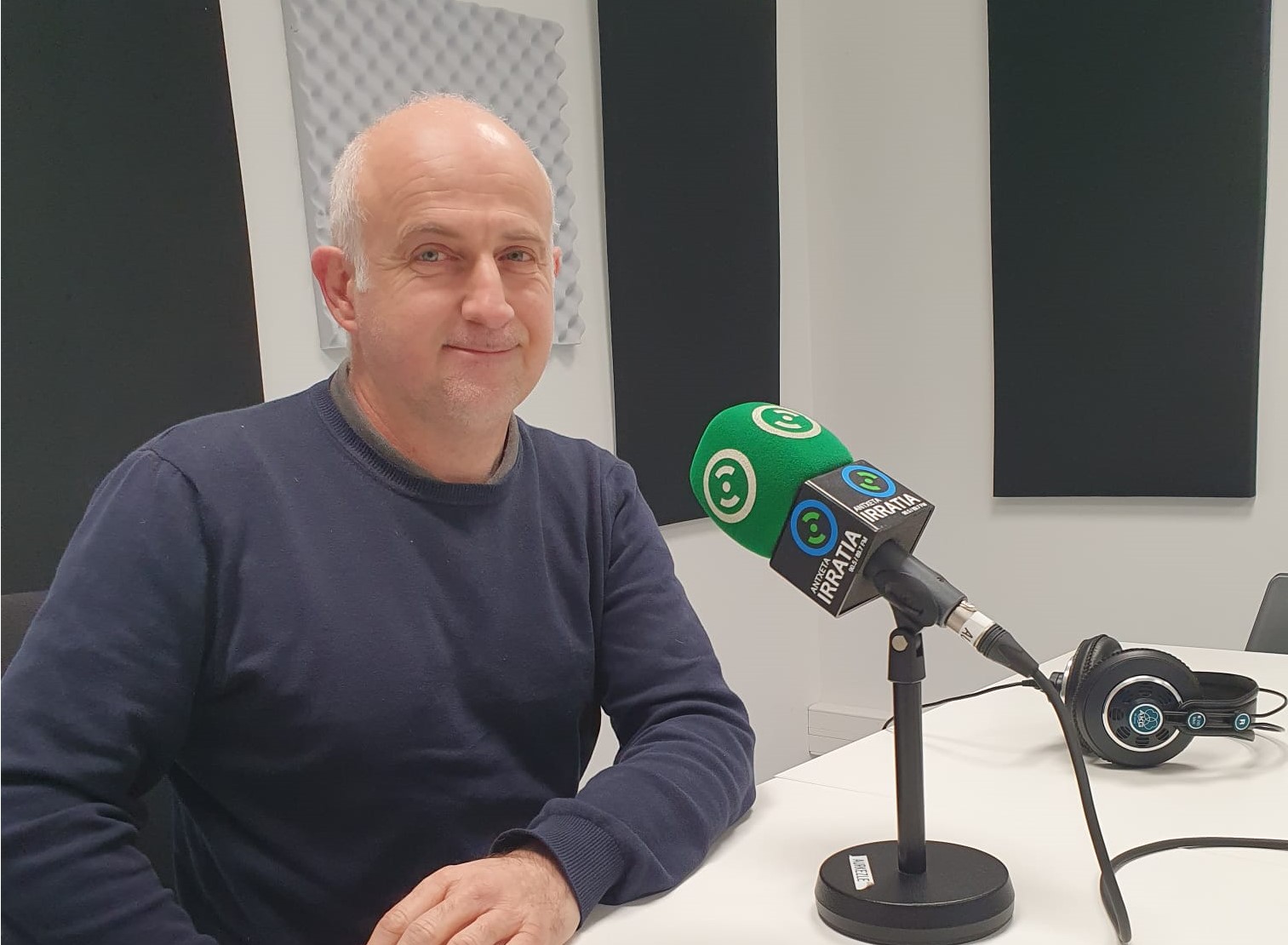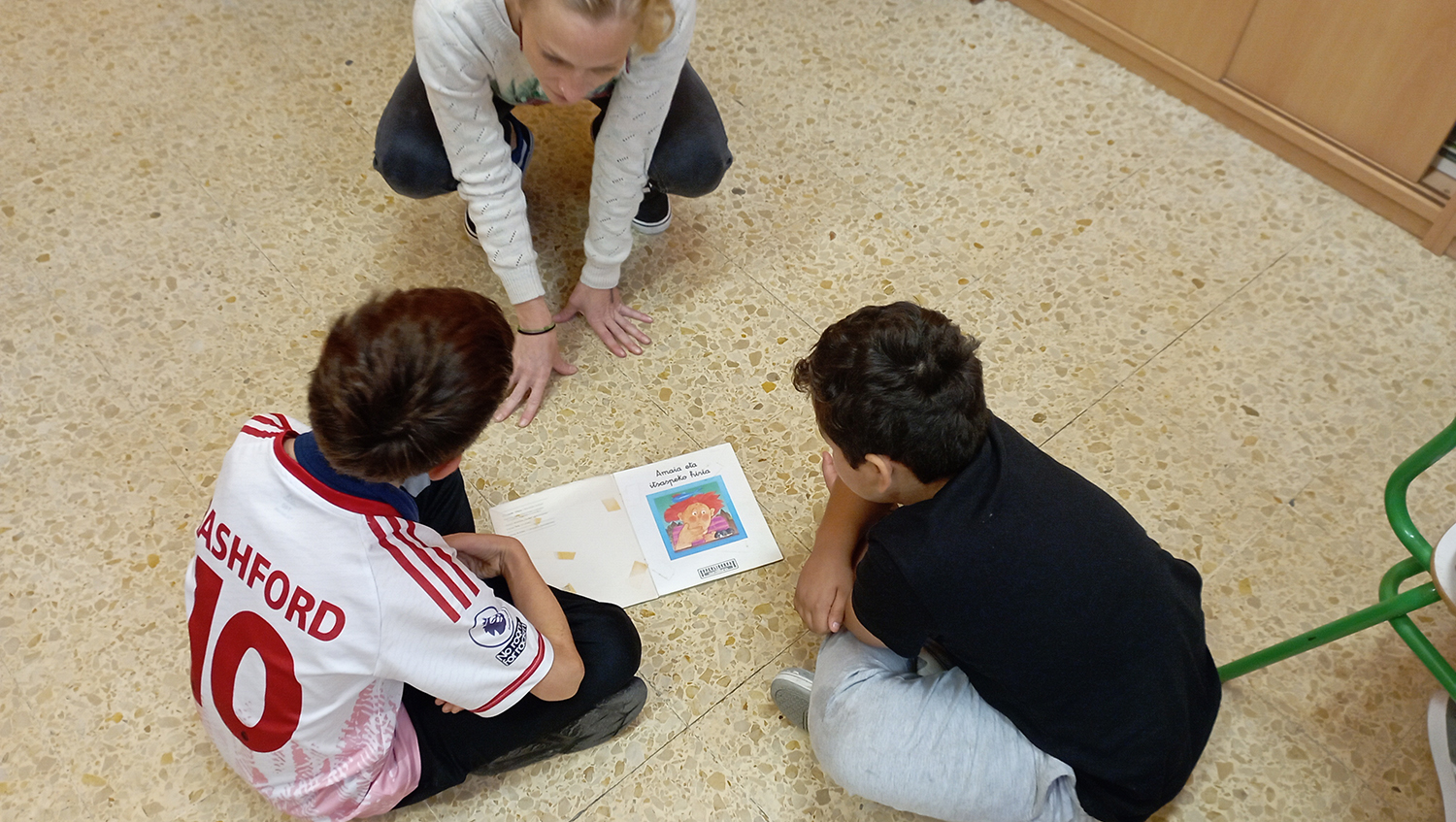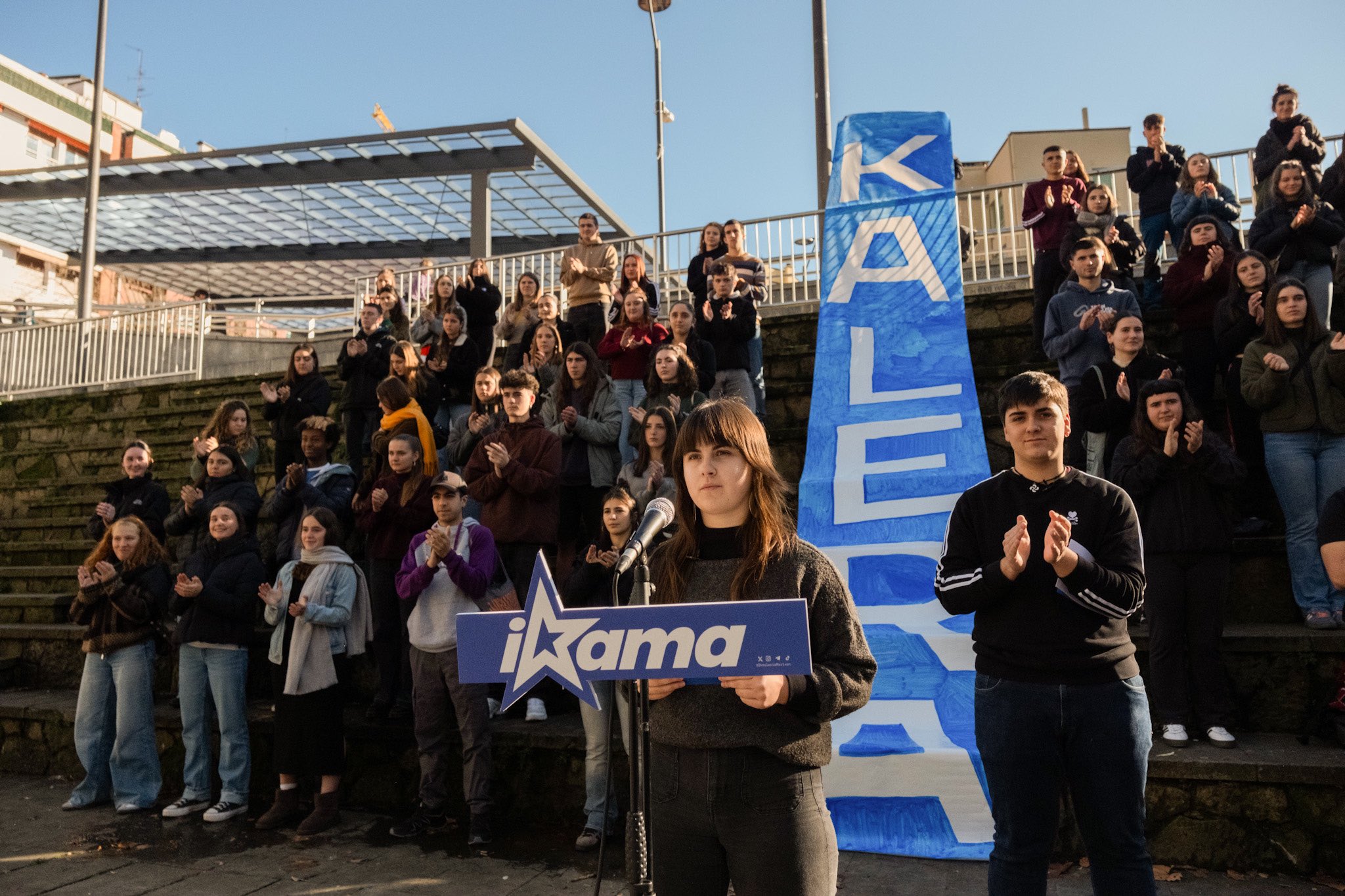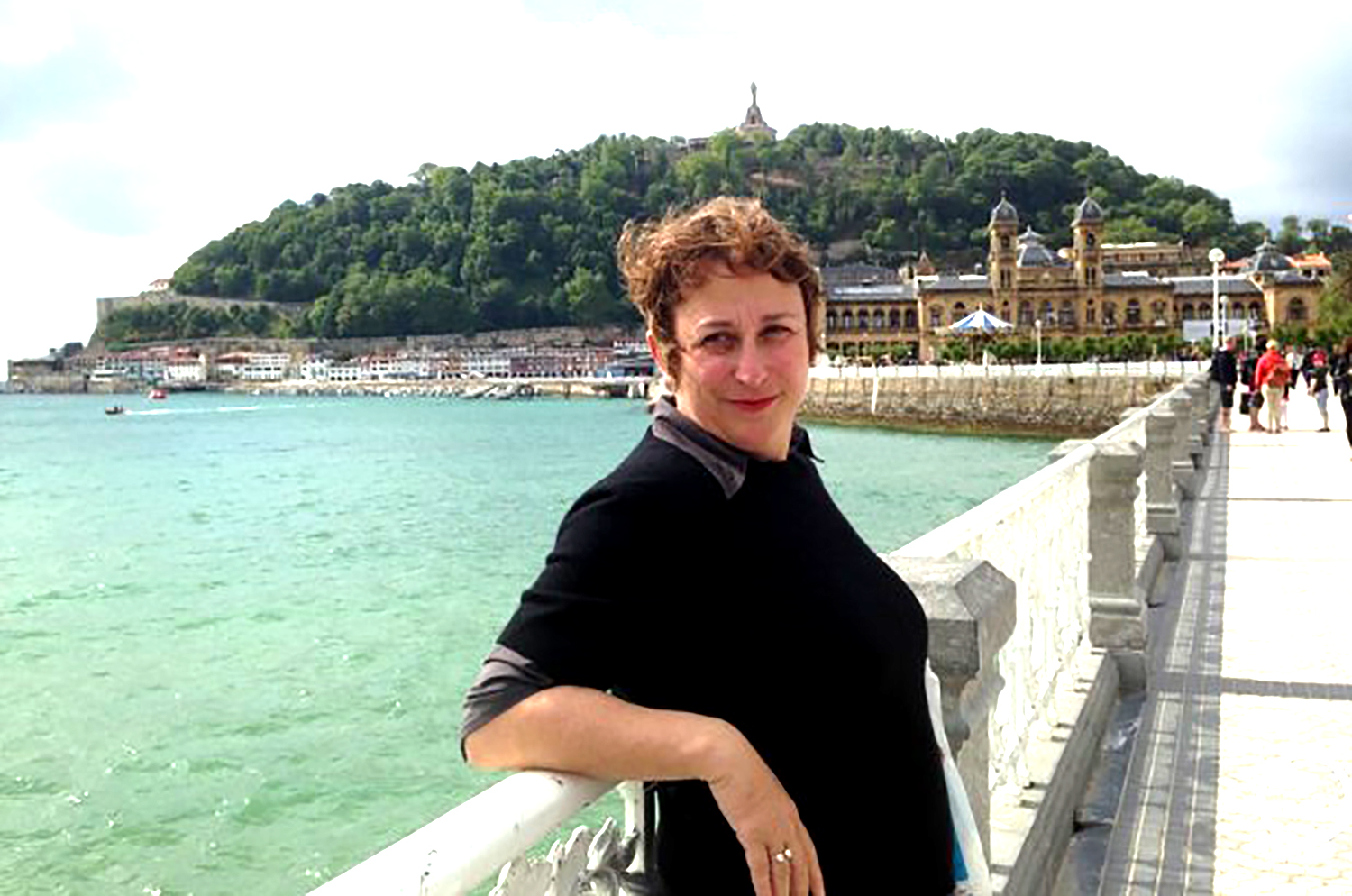Change to centres
- We have analyzed the keys to implement the interdisciplinary methodology of LOMLOE, the controversial criteria for students to decide whether to repeat or not, the final presence of philosophy in the curriculum, the effectiveness of measures to incorporate the feminist perspective in the contents... in order to measure the impact of the last Spanish educational law in the educational centers of Hego Euskal Herria. Teachers who are preparing for change have been consulted.

The educational centers of Hego Euskal Herria have the Spanish companies' education law, adapted by the governments of the CAV and Navarra, which in principle have a 50% competence to influence the curriculum. This LOMLOE of the PSOE, which will replace the criticized LOMCE of the PP, has many odds – that there is no wager for the public school in front of the concerted network, that does not oppose the segregation of students and that does not contemplate measures to lower the ratios and stabilize the teachers, for example Steilas, despite the fact that the Education Law of the Cava We will focus on the changes you will bring in pedagogy and curriculum in the following lines.
The law proposes a methodological change for the implementation of Primary and Secondary Education next year, through the intersection of different subjects and disciplines, from a
more global perspective and enhancing competencies. In Early Childhood and Primary Education there are experiences of this kind, but not in Compulsory Secondary Education, and the goal of the law is that all centers work before or after for projects. The peculiarity of Secondary Education is that there are more specialized teachers, that each subject has its own teacher (in Primary the tutor spends more time with the children), so this change of methodology requires a new coordination and group work among the teachers, both for the elaboration of projects and for the teaching of class, as the educator will not have his or her subject in mind.
The law divides the subjects to be crossed into two areas: the socio-linguistic (Basque, Spanish, Society) and the scientific-technological (Technology, Mathematics, Natural Sciences and Biology). Another thing is how each center will carry out the project and how it will work within those areas, or if it will include more subjects in that intersection, for example an artistic subject in one of the fields.
Olatz Zumeta: "To change the methodology and work for projects it is essential to dispense with some content and streamline the curriculum"
Erniobea, from Villabona, is immersed in a process of reflection by projects at the Institute of Secondary Education and has the challenge of taking steps along this path. The director, Olatz Zumeta, has told us that they have already worked small projects everywhere, which is not to start from scratch, but to go deeper into the subject. To this end, they have known the experience of several educational centres, including a Catalan public school that has been working for twelve years on projects. “We have seen positive that this methodology gives great importance to transversal competencies, works the autonomy and criticity of students, etc., and works less content. That is a concern for us, to see if we are going to be able to give all the content we have programmed working with this methodology,” says Zumeta. In other words, it is essential to dispense with some content and streamline the curriculum, because project work requires something else, and at least the government has said it will speed up the curriculum with content.”
Project work consists of posing some challenges and putting students in their organization, seeking alternatives and solutions, proposing things... “Another objective is to pay more attention to the effort made by the student, to the learning process he has had.” Zumeta values positively but also puts on the table a difficulty: evaluation. “We need training in competency assessment, we need practical tools beyond theorization to know how to truly value competencies.” In short, according to the law, the key is the means to implement them, according to the director: “Heziberri is also there and it has not meant great changes because education is made by people, and for this we need resources, including ensuring stable cloisters, because the high temporality of teachers does not help at all.”
Thinking vs. memorizing?
Another basis advocated by LOMLOE after the aforementioned methodology is that, more than content, the important thing is to learn to do with them, discuss and reflect and prioritize thinking about memorization. Olatz Zumeta believes that this is not about moving from black to white: “When working on projects, it is said that the teacher must be the guide, but in addition to the driver has to convey to the students some knowledge, explanations, contents…, because that is also necessary, and one should not choose between one or the other, but rather maintain the balance. Memorization is questioned today and, of course, not everything should focus on memorization, but some contents will have to be memorized, the student needs a basis to walk the way. At the same time, it is very important that students reflect and discuss, work criticity, as we prepare for life.”
In the same vein, Philosophy professor Iñigo Martínez told us about the ikastola Lauro de Loiu when we asked him about the topic: “There is a pedagogical stream that says that you have to end the contents, that the contents are on Google and for what to learn, but what do we think without them? Memory leads us to collect a heritage, to collect what previous speakers have said, and links between past, present and future. The methods of thought are fine, but we need handles, because it is not only a matter of opinion, but also of the consistency of that opinion, if it is a deepened opinion, if it is investigated ... Otherwise, we will turn students into tertulians.”
Iñigo Martínez: "There is a pedagogical stream that says that we have to end the contents, but what do we think without them? We need shooters, otherwise we will turn students into tertullians."
What place will philosophy have in the new curriculum?That
is the question we have asked Iñigo Martínez. It has contextualized us first: All the parties voted in the Spanish parliament that the History of Ethics and Philosophy abolished by the LOMCE would be returned, but the first draft of the LOMLOE did not. As a result of a campaign of protest and pressure, Martínez states that things have been changing and that finally the Spanish Government has given a “step in the middle”: The subject of Philosophy will also be compulsory in the second of Bachillerato – with LOMCE was only a compulsory subject in the first – but in the law of education prior to the PSOE will not become the subject of Compulsory Ethics in addition to the It is important to remember that not all students attend high school.
.jpg) Nevertheless, the influence of the Government of Spain in Hego Euskal Herria will be reduced, since both the Government and the Foral Government have decided that in the ESO the list of electives also includes the option of Philosophy, in the same line as the other communities of the Spanish state except Valencia. In the CAPV, another subject related to philosophy will be offered among the electives: Critical and Autonomous Thinking.
Nevertheless, the influence of the Government of Spain in Hego Euskal Herria will be reduced, since both the Government and the Foral Government have decided that in the ESO the list of electives also includes the option of Philosophy, in the same line as the other communities of the Spanish state except Valencia. In the CAPV, another subject related to philosophy will be offered among the electives: Critical and Autonomous Thinking.
On the other hand, Iñigo Martínez stresses that the subject of Civic and Ethical Values was taught in all ESO courses until it was eliminated by the LOMCE, and now they have reduced their offer to a single ESO course, “almost to meet the schedule”. Ethics is not equivalent to philosophy, “but there is a part of philosophy,” says the professor. In these times when we live the saturation of information, to interpret and question all that information seems necessary to stop and devote time, “and philosophy also contributes to this.” For those who do not know what this subject is for, these words of Martínez are: “To question ‘normality’ and live more awake.”
Criteria for the repetition of the course in question In order for the repetition of the course
by the students to be truly an exception, the new law establishes an easier way to pass. With two pending subjects, the student will advance directly and if he has more than two pending subjects, the teaching team will decide what to do, but in a maximum of two, the student will be able to repeat some level during all compulsory education. In the Baccalaureate, the youth can also go from first to second year with two pending subjects and get the title with a pending subject.
Despite the debate in the faculty which students are going to move forward and which are not, some believe that the lack of subjects to repeat and the flexibility of the options has entailed an excessive burden on the teachers' shoulders. In addition, Olatz Zumeta doubts whether the law does not contradict itself: “If you see that the student has internalized the competencies and is going to walk, it is rare that the subject is not exceeded, if it is not a very special case”.
The reason for the decision of the Government of Spain to make the regulations more flexible is that of the 34 countries that make up the Organization for Economic Cooperation and Development that marks the educational guidelines, Spain is the state with the highest number of repetitors – 9% of the students compared to the average 1.9% of the other countries. So how do we get the repeaters reduced and school failure data seemed better? Avoiding as much as possible the students repeat. But, on the one hand, the reality of Hego Euskal Herria is not that – the level of repetition is lower – and on the other, the solution to face school failure should not be simply to prevent repetition, but to take measures to avoid such failure, identifying as soon as possible the student who is staying “behind” and providing the necessary support, either by putting two teachers in groups, adapting the curriculum and methodology... In short, the educational system provides individualized plans for reinforcement, but without additional resources it is not easy to put theory into practice.
We insist on the subject: The iceberg summit was highlighted in the round table and the same conclusion: according to the studies, repetition does not produce good academic effects. “And it is normal that if we repeat and the solution is to do the same again, learning in the same way: if nothing changes and disabilities are the same, the result will be the same,” said Education inspector Pedro José Macho. I mean, the repeater would need that individual reinforcement plan, as LOMLOE says, but we hit the same wall again: without resources, beautiful words are useless.
The solution to coping with school failure should not be simply to prevent repetition, but to identify as soon as possible the student remaining "behind" and to give him the necessary help.
We must not forget that repeating is badly seen and that is very important when making a decision. “In fact, repeating is not serious if we put it differently: in the first we will not get it right, in the second we will not get it in the third, so we are overcoming difficulties and developing learning, but the truth is that a stigmatized measure in our educational system and in our society is for a student to repeat,” said Professor Agurtzane Martinez at the round table. “Why has it been so scandalous to repeat? The idea of failure is behind, but forming differences in these repetitions does not have to be bad, it should not be a tragedy to repeat it”, Iñigo Martínez.
A more feminist curriculum?The government
has sold that it has developed a curriculum that goes beyond the Eurocentric view and incorporates other perspectives in the historical narrative, but above all the feminist curriculum. It poses a feminist movement on the subject, for example, women are more present in the lists of names to be learned, and the regulations include, among other things, the obligation to combat stereotypes, violence and sexist attitudes, and that it is up to the educational administration to ensure that the materials of the centers are neither sexist nor discriminatory. “What was indirectly mentioned in the laws so far is explicitly worded and is the most obvious change. The need to work on gender violence in the goals, for example, must be considered as a step forward, and it is a response, in a way, to the work that the feminist movement has done in recent years – says Beatriz Rubio, head of Co-education of the Toki Alai public school in Irun –. However, what has not been done so far in the field of co-education has not been because the law has not allowed it, so it will have to be seen if something changes in the future.” II of the CAPV. Rubio adds that the Co-education Plan itself, which is implemented in the centres, goes beyond LOMLOE.
So why are our school curricula so far from being feminists? Rubio responds in line with his previous partners: “The law must provide resources to implement the objectives. On the one hand, training in co-education, because the decree may mean that sexist stereotypes must be broken, but there are teachers who are not even to identify these issues. On the other hand, the person responsible for co-education must be given hours to do this work. Today, it is established that in each center there is a co-education officer, but without hours freed for this work; I am responsible for co-education, but I only have hours to train the faculty, to participate in the seminars of each subject and include the gender perspective in their contents and subjects, so that the textbooks see with purple glasses and work on the visibility and references of the women in the contents... Otherwise it will be completely torn apart and this subject will remain subject to the will of the teachers”.
Beatriz Rubio: "To do a real feminist job, will the new law be dedicated to those responsible for co-education? Otherwise it will be pathetic and will continue to depend on the will of the teachers"
On the other hand, the data indicate that in the Baccalaureate, boys opt mainly for the Science modality and girls for the Humanities and Social Sciences modality. In the technological field, the gender gap also stands out. Well, on paper, LOMLOE poses another interesting challenge: to get more girls in unfeminine branches. We've asked Beatriz Rubio how this is done, and he's told us that at his center they have experiences going on, and that everyone has a fundamental starting point: science course teachers have partnered to advance in co-education. This year, for example, they have asked students to write the note they expected at the end of the math test and the professor has formed an Excel with the expected and obtained grade. “We want to show that the image that girls have of themselves linked to mathematical competence does not correspond to real ability, because boys look better than girls, and reality says girls get more notes than boys.” The girls are taken to meetings, seminars, conferences and scientific workshops; the co-education commission annually organizes a project in collaboration with the seminars of science, technology, informatics and mathematics; they analyze with the students how the construction of gender is carried out in society and how this conditions children when choosing studies and professions...

The LOMLOE has criticized those who
believed that the PSOE law was going to take steps towards secular education: the centers have to offer religion obligatorily, it will be an optional subject for students and will serve for the grade.
Moreover, the debate has focused on subjects. Due to the disappearance of the subject of History in the 3rd ESO in the CAV curriculum, several professors have shown their discomfort, arguing that the historical account of the previous course is not going to happen and that the students' knowledge is going to get bogged down. And among the most significant changes, the offer of elective subjects will be extended both in the ESO (Second foreign language, Philosophy applied to personal and social development, Digitalisation, Technology, Scientific culture, Physical and emotional health…) and in the Baccalaureate (History of the Basque Country, Applied Anatomy, Photography, Painting, Laboratory Techniques, Social Anthropology, Oral Communication…). In addition, in the Baccalaureate, the current three branches will be replaced by five branches to choose students: Science and Technology, Humanities and Social Sciences, Plastic Arts, Music and Performing Arts and General Baccalaureate (covering humanistic and scientific areas).
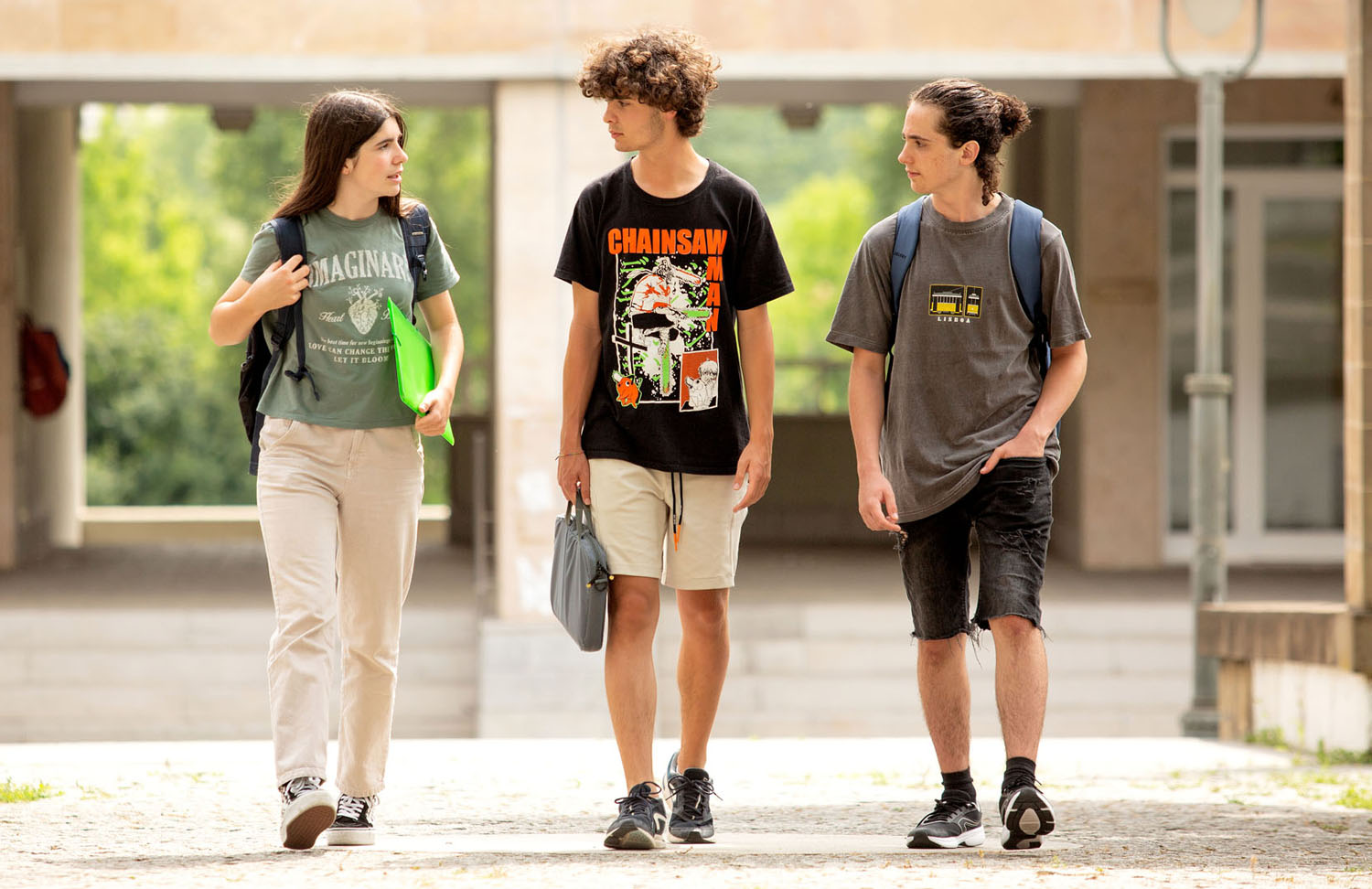
And for another year, the unions have organized prefabricated strikes for us. And we, individually, will decide whether or not to join the strike, without the need for any assembly at the school.
The strike model that I was taught is no longer in vogue, it seems. In my... [+]
Behin batean, gazterik, gidoi nagusia betetzea egokitu zitzaion. Elbira Zipitriaren ikasle izanak, ikastolen mugimendu berriarekin bat egin zuen. Irakasle izan zen artisau baino lehen. Gero, eskulturgile. Egun, musika jotzen du, bere gogoz eta bere buruarentzat. Eta beti, eta 35... [+]
Eric Etxartek Seaskako lehendakarikide ardura hartu berri du urte hatsarrean, Antton Etxeberri eta Sophie Layusekin batera. Peio Jorajuriaren lekukoa hartu dute hirurek, eta Lehendakarikidetza taldea osatu dute.
We were yelling, “New Year, what brings us?”, around the first night of the year, at the preemies who crossed the road. Waiting for the foals, drunks, us. And as there was no runner or selfie yet, we would find most of the Russians who had gone out to put down the excesses... [+]
Hearing and language teachers (PDI) and speech therapists are specialist teachers who work in both the public and the concerted school. Among its functions is the direct attention to students with language and communication difficulties, but also the establishment of incremental... [+]
The victims created by the IAP are not only functionalized teachers thanks to the stabilization process brought about by the IAP Law, but much more. Some have been given some media visibility as a result of Steilas's appeal, but most of them are invisible. All the victims of the... [+]









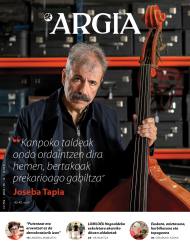


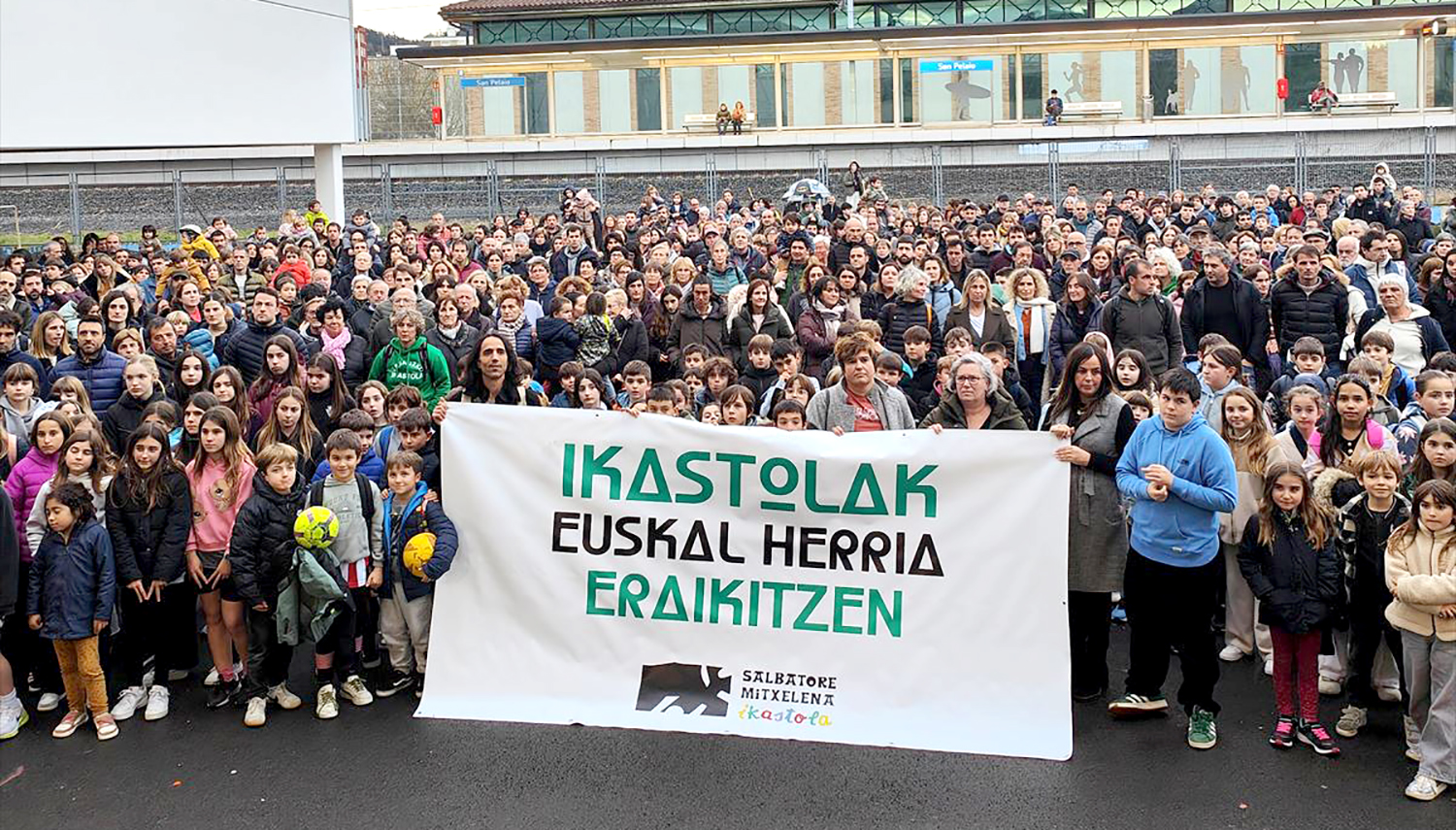




.jpg)
